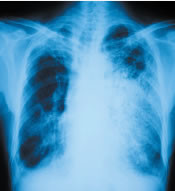
5 timeless habits for better health

What are the symptoms of prostate cancer?

Is your breakfast cereal healthy?

When pain signals an emergency: Symptoms you should never ignore

Does exercise give you energy?

Acupuncture for pain relief: How it works and what to expect

How to avoid jet lag: Tips for staying alert when you travel

Biofeedback therapy: How it works and how it can help relieve pain

Best vitamins and minerals for energy

Should you take probiotics with antibiotics?
Heart Attack Archive
Articles
Ask the doctor: High-elevation hiking with heart attack history?
Acclimate before hiking at high elevations. |
Q. I had a mild heart attack a few years ago but am now feeling fine. I'm planning a trip to Colorado. Is it safe for me to hike at high elevations?
A. If you're feeling well and don't have any cardiovascular symptoms, hiking in the Rocky Mountains should probably be fine, though you should check with your cardiologist first. Doctors used to advise people with cardiovascular conditions—even just high blood pressure—not to spend time at high altitudes. But there wasn't much evidence behind that recommendation. Now, there's a general consensus that ascending up to 12,000 feet should be fine for most people with heart disease. Exceptions include people with unstable cardiac disease, heart failure, or severe lung disease, such as pulmonary hypertension.
One in 10 men may be taking aspirin unnecessarily
Many men consider taking a daily low-dose aspirin to reduce the chance of having a heart attack or stroke. You should do so only if the chance of being helped outweighs the chance of triggering unwanted bleeding, since aspirin interferes with normal clotting. But about one in 10 men who take protective aspirin may not really qualify, according to a national study in the Journal of the American College of Cardiology.
Experts recommend that aspirin might be considered in someone whose chance of experiencing a cardiovascular problem is at least 6% in the next 10 years. At that tipping point, the chance of being helped is great enough to justify the risk of unwanted bleeding.
Ask the doctor: What is pericarditis?
Q. I had chest pains for a couple of days and thought I was having a heart attack. My doctor did an electrocardiogram and said I had pericarditis and that it was not serious. What exactly is pericarditis?
A. Pericarditis is inflammation of the pericardium, a protective, double-layered sac surrounding the heart. It has many different possible causes, including a virus or other infection, certain illnesses, an injury to the chest, radiation therapy for cancer, or a reaction to medications. Complications from bypass surgery or the insertion of a pacemaker are other possible triggers. But most of the time, the cause remains elusive.
Heart attack risk rises after a bout of pneumonia
If you're hospitalized with pneumonia,your heart attack risk may rise in the following month. Image: Thinkstock |
If you're over 65, be sure to follow the latest pneumonia vaccine guidelines.
Each year, about a million people in the United States end up in the hospital with pneumonia, a serious lung infection that can be caused by an array of different viruses, bacteria, and even fungi. New research suggests that older people hospitalized with pneumonia face four times their usual risk of a having a heart attack or stroke or dying of heart disease in the month following the illness.
New thinking about beta blockers
Beta blockers are no longer the first line of defense used to lower blood pressure. |
If you have high blood pressure, there may be better alternatives.
The problem with plaque: Even lesser amounts are still risky
Known as non-obstructive coronary artery disease, this condition can trigger heart attacks down the road.
You just had a cardiac stress test and you passed with flying colors. Does that mean you are free of heart attack risk? Not necessarily, says Dr. Ron Blankstein, assistant professor of medicine at Harvard Medical School and preventive cardiologist at Brigham and Women's Hospital.
Doctors often mum about sex after a heart attack
A week or so after having a heart attack, if you can take a brisk walk without any heart-related symptoms, it's fine to have sex. So say the guidelines from the American Heart Association. But most doctors don't share this advice with their patients, according to a study in the December 2014 Circulation.
The study included more than 2,300 women and 1,100 men between the ages of 18 and 55. Just 12% of women and 19% of the men reported receiving any counseling about sexual activity within a month of their heart attacks. Those who did get advice were often given restrictions (such as to limit sex or to take a more passive role) that are not supported by evidence or guidelines. Being female or older was linked to a lower likelihood of receiving counseling.

5 timeless habits for better health

What are the symptoms of prostate cancer?

Is your breakfast cereal healthy?

When pain signals an emergency: Symptoms you should never ignore

Does exercise give you energy?

Acupuncture for pain relief: How it works and what to expect

How to avoid jet lag: Tips for staying alert when you travel

Biofeedback therapy: How it works and how it can help relieve pain

Best vitamins and minerals for energy

Should you take probiotics with antibiotics?
Free Healthbeat Signup
Get the latest in health news delivered to your inbox!
Sign Up







